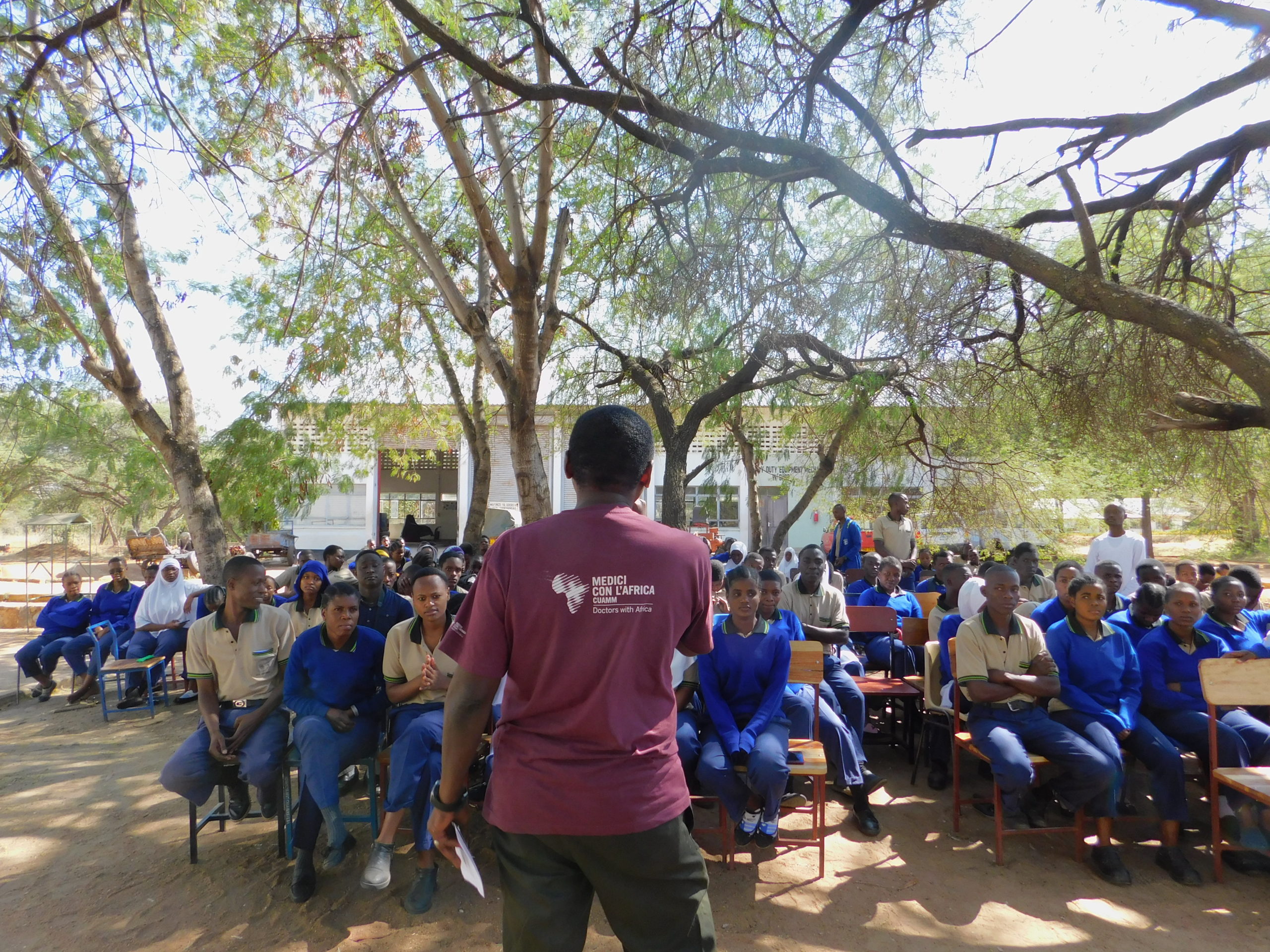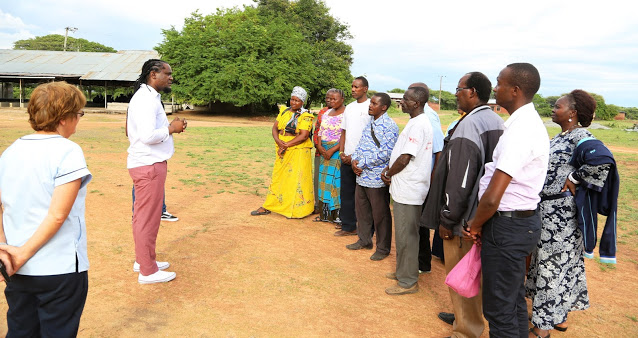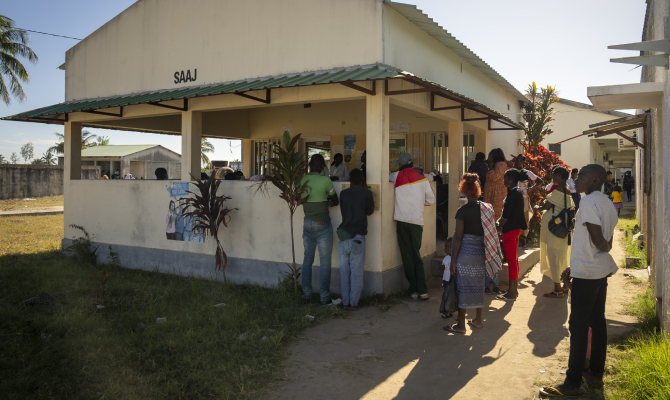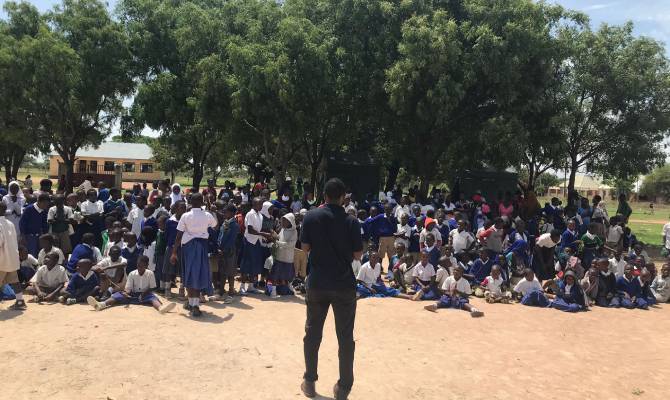«Since last April, – reports project leader Chiara Didonè from the field – we have been implementing a program, financed by AICS, led by the University of Florence, in the Shinyanga area, with the aim of treating young people effected by HIV, but in particular to raise awareness on the value of prevention. Prejudices related to this virus hinder early diagnosis, as well as geographical distances and poor transportation to reach hospitals and specialized centers discourage people from taking the test.
For this reason, CUAMM goes to schools, setting up stands entrances of institutes. After awareness raising activities, we offer testing. We are also present in the Shinyanga Regional Hospital and in the health centers of Ngokolo and Bugisi, where we support health workers and where we offer real “adolescent clinics” every Saturday, so that young people with HIV can take advantage of routine checkups, receive treatment and meet more of their peers.
During the first phase of the project, in collaboration with local authorities, 15 schools, 10 secondary and 5 primaries, were selected to reach the 10-24 age group. In June alone, the program reached 444 students. Fundamental was the role of CUAMM’s Tanzanian doctor, who also works in sex and reproductive education: together, we overcome language issues – I am learning, slowly, Swahili – but above all else, we try to make the students comfortable.
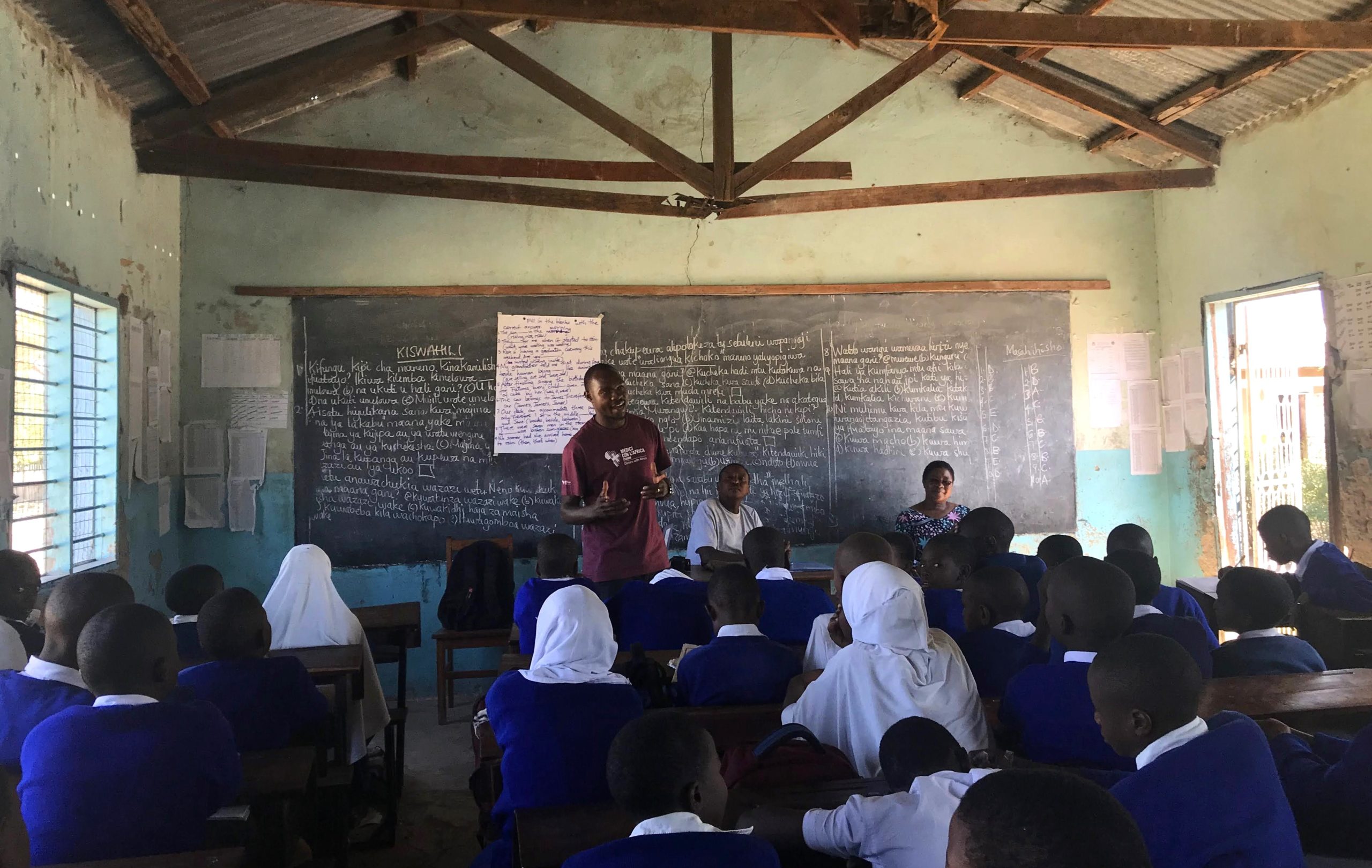
I remember a significant episode about how words and knowledge can help change perspectives. Before going to a school, I met with one of the teachers to explain how the awareness and screening day would take place and to find out how many young people would participate: out of hundreds initially, only 16 agreed to be tested for HIV. All the others were fearful. Based on this number, we reached the institution with just a stand and one nurse, but after conducting the awareness activity, the screening involved as many as 117 people and we stayed at the school until 7 p.m.!
After that day, I engaged some students in a chat to understand what had contributed to overcome their fear and take the test. The most obvious aspect was to offer that service in school, in a context where almost every one of them felt understood. We professionals are a young team, we put music on, I talked while some students touched my hair, the driver made jokes. With little, we got them involved, as if we were among friends! The emotional bond that develops between CUAMM cooperators, especially during these outreach initiatives, is very strong and it works.
The testing part is always psychologically difficult. I remember when 17-year-old Elisa found out she was positive: the young girl did not know that her mother had HIV. Thanks to CUAMM Elisa was diagnosed, now she receives proper treatment, and has been informed of HIV-positive support project.
There is still much work to be done to combat prejudice and properly support patients, but Elisa’s story is proof that what CUAMM is doing is helping.
We have not stopped in summer either, as we have organized community-wide meetings with “over 20s”. Soon we are going back to school, between colleges and high schools, to be with Tanzanian girls and boys. To accompany the hope of a future in wich awareness decreases the risk of contracting the HIV virus, a future that as such, from young people cannot disregard!».
